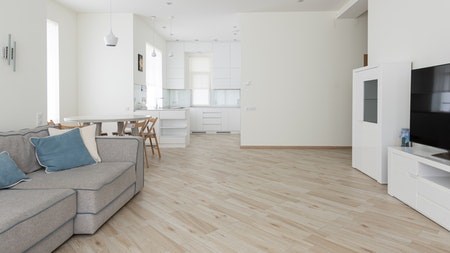At any time during the past year, did you have the thought that no matter how bad the Covid-19 pandemic, that it might be telling us something about the way in which we live?
This virus, which is neither a life-form nor non-living, must be intelligent I suggest, although this is a topic researchers have long debated. But consider this for smartness: viruses do the unexpected; they are dependent on living things to reproduce; they adapt to differing environments; and most importantly, they change in order to survive.
Sound familiar? This is similarly, how the human race has survived, and if we have learnt one thing from catastrophe’s, it is that we do everything we can to survive. But are we really heeding what may be a very strong message from this virus? It may be fanciful but indulge for a moment in the idea that the coronavirus is telling us that we need to do things differently, and that we should perhaps look deeper into the way we live, which in turn means a relook at the built environment.
In this vein I had a ‘wild fantasy’ conversation with Professor Viruly of UCT’s Urban Real Estate Research Unit. He, like me, is also of the mind that it’s time to change the dialogue around property, and that we actively need to move in a new direction. “It’s not often in life that we get the trailer of the future,” he said. “But if that’s what we were given with the coronavirus, then we should not be trying to go back to the way things were.”
Viruly and I reimagined the property market of the future, which HAS to be driven by the UN’s Sustainability Development Goals, more specifically those that promote sustainability, environment, and social ambitions, with technology and data playing a crucial role. Bear in mind that property is one of two sectors that has not fully embraced automation (the other is education, which coronavirus is forcing to change).
Firstly understand that the technologies that exist today are not necessarily designed to replace humans, but to work side-by-side with them … that is where efficiencies lie.
In use currently, albeit sparsely, are technologies like AI and augmented reality, such as physical robotic showings of home (not yet popular in SA), and online virtual tours (sluggish growth), drones, chatbots, the sensor-home, and Big Data. The latter is where all the ingredients lie for proptech transformation, and not just in how we view homes, but how we live in them, and importantly, how those ingredients can be used to revamp the regulatory environment.
Let’s look at blockchain and the potential that lies beneath. Viruly says that in a few years we will be able to scan a milk carton and know all about the cow that gave us that milk. She is called Daisy, and she lives in a field in the Midlands. We will know when she was born, how much milk she produces, what she eats, and when her health inspections were done.
“Now apply the same principle to a house/building,” says Viruly. “When you buy or rent a property it will come with, probably, a digital logbook. You will be given all the history: when it was conceived and developed by the architects and who they were; when it was constructed and by whom; what additions or alterations were made and when; where the service feeders are; who has owned, rented or lived in the property; rates and taxes paid or due; and any rights attached to it. In other words, a _digital twin.”
From a regulatory perspective, a digital twin is explosive because utterly everything connected to the property is recorded in one place , which, if the processors are willing, could have the potential to reduce the transfer of property to as little as a couple of hours.
“Currently we do not have this type of integrated information because we are dealing with little bits of technology in use across different chains of facilitation, be that planning, broking, finance, deeds registry, etc,” says Viruly.
A second vision for, specifically, the residential market, is that no longer will we be buying bricks and mortar. We may instead, suggests Viruly, be buying a service. It might be true to say that we are already buying into apartment blocks that offer hotel-like services (laundry, gym, concierge etc), but the question is: ‘will we be buying the asset class or the service?’, especially relevant to those who can no longer afford to pay for such services outside of the costs of maintaining their existing suburban home.
So let’s look at the suburbs, which Viruly says could be more interesting. “Largely they are like dormitories. What Covid-19 might be telling us is that we need not necessarily work from home, but close to home, in other words everything within reach of a 15-minutes walk. Smaller towns benefit from this right now, and there is a green perspective to those lifestyles, for example the one-car home burns fewer fossil fuels etc.”
The point is how can the future of property improve our wellbeing? Do we disassociate property from driving GDP growth? “Yes, but only if we focus on greener, healthier lifestyles,” says Viruly.
“We currently live in the social disaster of apartheid cities. I call residential properties in such cities the 40s house – people live 40 km away, in a 40 sqm house where 40% of their income is spent on transport. We need to change this to a 20s house … same formula, but half of the impacts, which will result in far less urban sprawl.”
This is relative to another game-changer for the future of residential property … one that is already in play, but needs more definition in light of the social aspect. “There exists currently an interesting overlap between proptech, fintech and contech (construction),” says Viruly.
“These financial inter-relationships must really focus on fully adjusting to the green economy. We shouldn’t, for example, be building more but rather use existing infrastructure more efficiently. I always begin my property lectures with the reminder of just how big investments are in property, how high the transaction costs, yet we do not highlight enough how the social role is skewed to favour those who can make large investments. Too many South African’s cannot play in the property market as a result.”
Could it be that we are constantly buying into, or paying lip-service to, the hype of change without changing much? It is worth considering that for decades the property market has adapted to technology, rather than the other way around. It’s a fact that even conveyancing hasn’t transformed that much since before the Second World War.
“In the same way that eCommerce brought enormous change to the retail sector, it is time to allow proptech to move the property market in a new direction … one that is socially and environmentally sustainable,” says Viruly.




